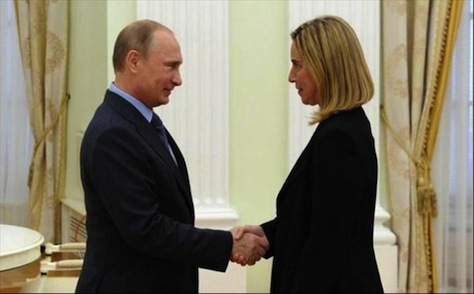I spoke briefly with Flora Neve at Voice of Russia yesterday about Italian foreign minister Federica Mogherini’s appointment as the next high representative of foreign affairs and security policy of the European Union.![]()
![]()
Among other points, I noted that Mogherini, despite her inexperience (just six months as Italy’s top diplomat), and the worry among many eastern and central European leaders that she’s too sympathetic to Russia, is particularly well-suited to the EU role.
* * * * *
RELATED: Forecasting the EU power summit, part 1:
Europe’s next high representative
RELATED: Tusk, Mogherini appointed to top European offices.
What next?
* * * * *
Realistically, foreign policy is the last issue that a sovereign nation is ever likely to concede to a supranational policymaking body like the European Union. Mogherini’s successor, as the foreign minister of a G-7 country with a $2.07 trillion economy, will have more real power to make foreign policy decisions than Mogherini will in Brussels. That means that Mogherini’s power in the job will be in amplifying a sense of unity around those issues where European leaders largely agree:
If I were a national leader at the Council making this decision, I would worry that someone like Sikorski — it’s not he’s too experienced, and he’s going to take away the power of a sovereign national state to set its own foreign policy — it’s that he may be out in the limelight saying things that are a bit impolitic. When, in fact, the real strength of this role is for someone like Mogherini who has the skills to work behind the scenes and pull together cooperation where it’s possible. And I think that she’s much better suited for that role than Sikorski.
